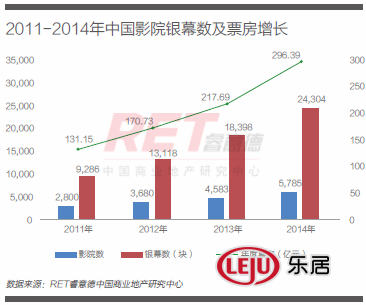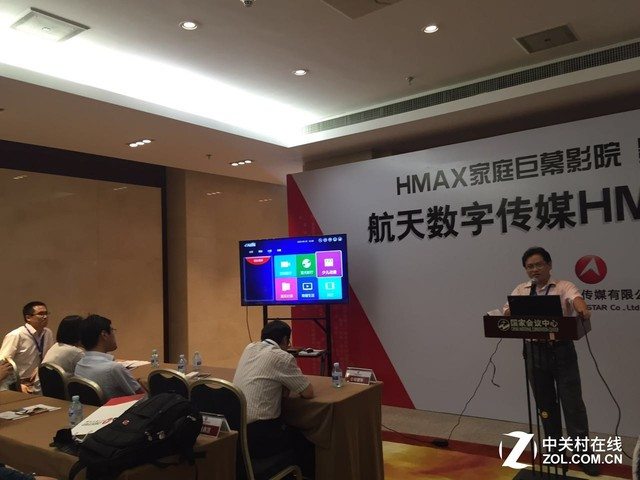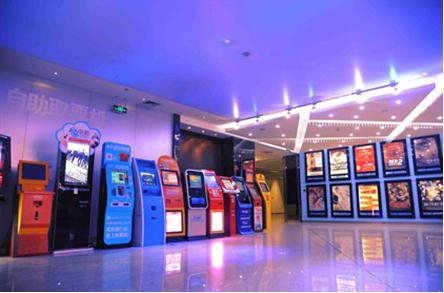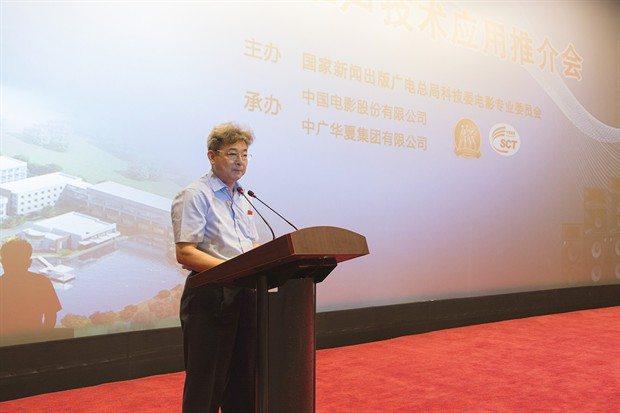
As we clear the backlog of news, here is a summary of major cinema news in China from the month of June. I know that we are now in August, but July will follow soon (hopefully), after which we resume normal weekly service.
Business
The CEO of Stellar Holdings has announced that he plans to increase the number of SMI Cinema to 180 at the same time as China tech major Baidu buys a minority stake in the company. Currently 90 cinema, expansion will see 20-110 added with an average capital expenditure of CNY 25 million (USD $4 million). The company is also expanding its co-operation with Baidu for the Baidu card launched in mid-May under which Baidu subsidises tickets by 36 yuan (USD $5.79), but with profit sharing. LINK In a separate announcement Baidu, Magnolia Fund and Cheonan paid HK $450 million (USD $58 million) for 600 million SMI holding shares for a price of HK $0.75 per share, for 4.8% of the enlarged issued number of shares. LINK
China’s box office is booming, with the dream of CNY 100 million (USD $16 million) per day now a reality. Total box office for the year is predicted to be CNY 40 billion (USD $6.44 billion). But there is still scope for self criticism. “The Chinese film market still has many problems: domestic movie box office monolithic weak competitiveness; release genre uniformity: comedy, youth, love, action movie occupy the screen; no difference in the competitive theatrical release, a film released , up more than 40 theaters, the low degree of audience fragmentation, the theater can not provide audiences with a ‘nutritious meals’, a balanced mix of the future growth potential of the film at the box office must come from organic growth, rather than the current extensive growth. ” LINK
A new study confirms that he growth in China’s box office over the past three years is the result in the increase in the number of screens than the number of viewing trips. “[D]espite the country’s total box office revenue growing at an average annual rate of increase of 42% of averaged visitors every year, but fell slightly in history to reach the peak (32) was in 2011. Thus, the overall box office growth in Chinese cinema mainly due to the extensive construction of a new theater drive.” The large number of new theatres thus continues to ‘dilute’ the Chinese box office, with 7.5% of high-yield cinema getting 40.7% of the box office and 66.2% of the low-kiel cinemas generate just 13.8% of the BO. There is also a strong interplay between success of cinema and malls, the report reveals. LINK
In 2014 China produced 618 films, of which around half had no chance to screen in a theater and the audience. A panel at the recent Shanghai Film Festival called “China Film Next Stop: Bustling left, right crisis” revealed that producers and distributors had to resort to film rental rebates and “flying cards”, a.k.a. gifts or bribes, such as wining and dining theatre owners and giving food ‘gifts’ as part of the “hidden rules” to get their films shown. LINK
One of the predictions to emerge from the Shanghai Film Festival forum is that Mainland China will one day have 100,000 screens. “Bigwigs from the Internet believe that in the future China will total screen more than 100,000, because there are more than 700 million Chinese rural population, where the cinema market is still blank; but no theater does not mean they do not have consumer demand.” Also predicted: China will overtake US BO between 2018-2020 and a merger between cinema and Internet releases. LINK
Private Cinemas
More articles on the popularity of private cinemas, these ones in Taizhou, driven by demand from young couples wanting some privacy and escape. But is that “Mad Max: Fury Road” that they are watching? Is it out on Blu-ray already? LINK
A survey of 30 private cinema in Zhuzhou found that 60% of them were set up by entrepreneurial college students – and 0% of them complied with fire safety regulations. LINK
Imax/PLF
Imax has partnered TCL Multimedia Technology to launch the first ever high-end private Imax cinema system. The “IMAX Zhen Enjoy Theater” (it sounds/reads better in Chinese) is the result of two years of joint R&D. According to Imax’s CEO Richard Gelfond, it “is the first set designed for families to create a one-stop modular program, the most advanced technology and IMAX theater design, while providing the same level as the IMAX theater service, providing the world’s most reliable maintenance service theater system and 24-hour monitoring service.” LINK
And it would not be China if there was not a 100% domestic rival solution, called HMAX [home-Max?], positioning itself as a premium home video giant screen home theater solution. IT promises that its customers can “enjoy IMAX giant screen theater-level audio and video” quality in their own home. LINK
And Chen Xing has also popped up with its own “Imax” solid-state laser projector solution. “”Cinelab Aurora giant screen,” the concept of content includes two aspects: a laser light source IMAX upgraded solutions and common source DMR solution.” LINK
Ticketing
Online/smartphone ticketing is eating the box office. In 2014 online movie ticket share reached 45.8% in China, with top three providers Cat’s Eye, Guevara, Weibo movie tickets respectively commanding 16.87%, 6.75% and 4.99% market share. But settlement price and online selling price continue to diverge, with massive subsidies funding the box office boom. And no sign of fewer machines in the cinema lobbies. LINK
Event Cinema
National Theatre Live is coming to China, with screenings of “The Audience” with Helen Mirrent and “Hamlet” with Benedict Cumberbatch. The initiative was promoted by the British Embassy. [NB: For all BC fans, in Chinese Benedict Cumberbatch is written as “Kang Budge, Benedict”.] LINK
Technology
Audio – China Film Science and Technology Institute, China Film Co., Ltd. and Guangdong Television Technology Co., Ltd. have announced a multi-dimensional multi-channel sound system, that looks set to rival Dolby Atmos, Barco AuroMax, DTS-X and Imax. The result of three years of development the 13.1 audio system is said to be “cost-effective, easy to deploy and sources localization features,” with cost said to be a quarter of Dolby Atmos. Chinese films using this system will also be eligible for state subsidies. LINK
Is a fully automated cinema possible. Yes, writes People’s Daily, “In fact, in Korea, this theater is in existence in Seoul’s South Korea Mika Happy Studios store, with only eight staff, which also includes cleaning, has 28 self-purchased tickets one, support the entire operation theater within theater tickets available. So how does this theater performance? To achieve 300 million yuan [USD $48.31 million] at the box office last year, six million people came to watch films there.” The rest of the article highlights the CAIS TMS system. LINK
Dolby recently opened a “local service centre” in Beijing to support the Greater China region cinema market and “provide for the maintenance and replacement Dolby hardware products and services for domestic customers with more convenient and efficient after-sales support.” I’m surprised they did not have one already. LINK




